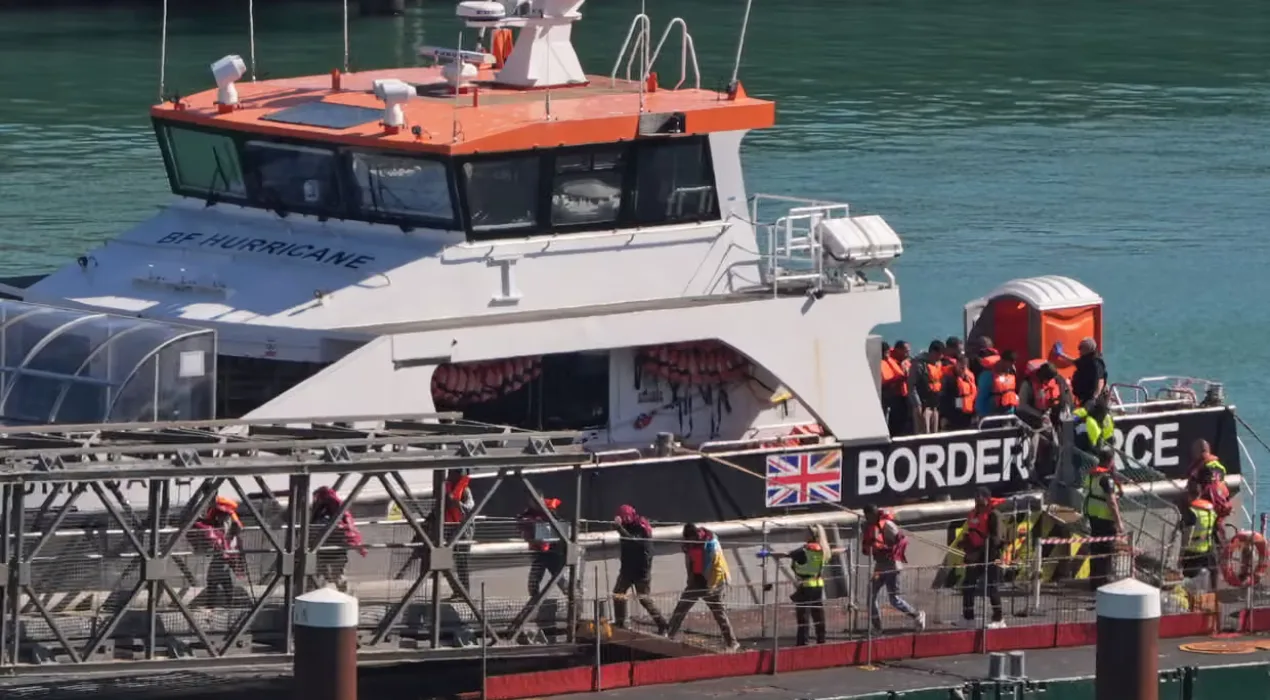Keir Starmer (Parliament Politics Magazine) – A cabinet minister says Keir Starmer’s migrant returns deal with France will continue despite a high court ruling blocking one Eritrean deportation.
The technology secretary, Liz Kendall, stated that the “one in, one out” plan would not be permanently halted by the last-minute order that prevented the 25-year-old from being sent to Paris.
The individual, who cannot be identified for legal reasons, claimed he was a victim of human trafficking and that being deported to France would leave him penniless. On Tuesday, a judge issued a temporary injunction.
Kendall told Times Radio on Wednesday she would not comment on “operational details”, but added:
“This is one person, it is not going to undermine the fundamental basis of this deal. This decision is disappointing, but it won’t prevent the rest of that deal going ahead.”
A solicitor representing asylum seekers questioned why the government had taken “an arbitrary and chaotic approach” to choosing who would be removed, including mistakenly selecting children.
Imogen Townley, from the firm Wilsons, which represents several people earmarked for removal, said:
“There has been quite an arbitrary and chaotic approach to selecting people arriving on small boats without much consideration given, or seemingly any consideration given, to whether they are suitable for return to France.
You would think that the government of the UK working with France would be able to select some people, particularly in a pilot scheme when there is quite a lot of resources aimed at a small group of people.
But unfortunately, they have been taking this unreasoned approach. You are even seeing children caught up in this process and children being chosen for removal to France when they should be explicitly removed from this process.”
Two 17-year-old males were allegedly mistakenly selected for the program last month, according to reports.
When scores of Channel asylum seekers arrived in the UK last month, the Home Office detained them under the scheme and promised to return them to France “within weeks.”
Almost every day this week, commercial Air France aircraft from Heathrow to Paris were scheduled to remove them, but none have been removed as of yet.
Ministers now run the risk of more legal issues and hold-ups. At least five other individuals were designated for deportation this week, according to sources.
According to some opponents, ministers are dealing with issues reminiscent of the Rwanda deportation plan of the previous Conservative government, which was frequently contested in court and failed to physically remove anyone.
Under the deal, signed in July by Keir Starmer and Emmanuel Macron, the French president, the UK agreed to detain Channel claimants and send them back to France in return for taking a similar number of asylum seekers with family ties to the UK.
Starmer said at the time:
“There is no silver bullet here, but with a united effort, new tactics and a new level of intent, we can finally turn the tables.”
Mr. Justice Sheldon, who issued the temporary order preventing the Eritrean man’s deportation on Tuesday night, stated that additional time was required to look into his allegation that he might have been a victim of human trafficking.
He informed the court that he had been trafficked from Ethiopia to Libya in 2023 after traveling there with his mother when he was a small boy.
He said that after his mother paid £1,000 to smugglers, he traveled to France via Italy and crossed the Channel to Britain on August 12 in a tiny boat, according to court documents.
As part of the deal, France has been preparing to fly asylum seekers to the UK on Saturday.
A French interior ministry spokesperson said:
“The first migrants are still due to arrive in France from the UK this week and the first to leave France will do so starting Saturday.”
What legal challenges are affecting the UK’s deportation policies?
In 2017, the Supreme Court determined in Kiarie & Byndloss that it was unlawful for the Home Office to implement a “deport first, appeal later” policy in situations where individuals could not meaningfully engage in the appeals process from outside the United Kingdom. The ruling put a stop to the frequent practice of appealing under Section 94B certificate procedures that required individuals to appeal from their country.
The courts require a determination to facilitate any meaningful opportunity to present evidence; witness evidence must also be live, to ensure basic fairness in deportation proceedings.
The absence of legal aid or procedural support for individuals at the initial asylum interview stage and then subsequently for section 94B deportation appeals before the courts has led to challenges to legality.

